PHYSICIAN REGISTRATION & MEDICAL LICENSE APPLICATIONS
Home » Practice Areas » License Applications » Physician License Applications
Physician License & Registration
The Texas Medical Board issues medical licenses, oftentimes referred to as physician registrations, pursuant to the Texas Medical Practice Act Chapters 155 and 156 and according to the Board’s Rules found in Title 22, Chapters 163 and 166 of the Texas Administrative Code. A valid Texas registration is required to practice medicine in Texas and the lack of such exposes a physician to the full force of the statutes penalizing unlicensed practice. The licensing process can be complex and labor intensive and oftentimes a physician can find themselves before the Texas Medical Board forced to answer questions concerning their good professional character and/or fitness to practice medicine.
The most common grounds for denial and/or going before the Board’s Licensure Committee include:
- Academic difficulties in medical school including poor performance or discipline as evidenced by the applicant’s academic transcript from the third or fourth year of medical school;
- Problems in a post-graduate residency program including failing grades, poor performance, or discipline by the medical faculty;
- Physician discipline from a medical staff, denial by a credentialing committee or other discipline by another state licensing board;
- Criminal convictions involving dishonesty, moral turpitude, controlled substances or alcohol;
- Mental illness which rises to the level of requiring the Applicant to demonstrate their ability to practice medicine with reasonable skill and safety;
- Falsification of information on the application;
- Malpractice claims, lawsuits and judgments; and
- Perceived statutory ineligibility.
Without a doubt, the most critical point physicians should keep in mind is the need to complete the application process with full honesty and candor as even a hint of lying or falsification can have serious repercussions. As a matter of policy, the Medical Board carefully scrutinizes each application and will frequently send lacking letters demanding clarification or further information. The Board will also conduct a comprehensive criminal background search via the Federal Bureau of Investigation database as well as comb over medical school and residency evaluations and performance assessments. The Executive Director has the authority to deny a physician’s application on the basis of a real or perceived falsification. Moreover, once it becomes final, such a denial will be submitted to the National Practitioner’s Database and become a part of the applicant’s permanent record. Any uncertainty as to whether or not to include information should generally be resolved on the side of caution. Genuine disputes or personality differences between the applicant and medical school faculty or other staff can be successfully accounted for at a later date; an effort seen as a deliberate attempt to conceal information cannot.
Even once a physician has received their license and initial registration, they are required under the Medical Practice Act to periodically renew their registration permit. This renewal process presents the Board with another opportunity to question the physician’s fitness to practice medicine in Texas.
If the physician is at all uncertain on whether to include certain information or suspects that the Board may raise issues about their past or current fitness to practice, they should contact an attorney experienced in licensure and administrative law. Certainly if the applicant has been denied a license and registration or has been invited to come before the Board, they should contact a lawyer immediately. Once the applicant has received an initial letter of denial, they have twenty days to contest it before the denial becomes a part of the physician’s permanent record in the NPD. Oftentimes an initial presumption of ineligibility can be overcome with the able assistance of a knowledgeable attorney familiar with the policies and practices of the Medical Board.
The Leichter Law Firm has successfully represented almost 500 physician applicants before the Texas Medical Board. In numerous cases, our attorney’s have made the difference between a denial and the granting of a full, unencumbered license and registration. Further, Confidential Rehabilitation Orders via Texas Medical Board Rule § 180.1 are available for certain applicants. These orders are ideal for applicants with a criminal background or a history of chemical dependency, substance abuse, or mental illness which is currently being treated and in remission. The chances for such an order are greatly increased for applicants who have retained an attorney who can assist them in collecting remedial evidence and presenting it to the Board.
Navigating the complicated procedures of the Licensure Committee without the aid of an experienced lawyer is a formidable task. Often the need for expert evaluations and or documents you may not be aware of may make the crucial difference to the outcome of your file. This is your one chance to appear, present, and plead your case so it is essential that it is handled correctly. Moreover, as it is your good professional character or clinical competence which is in issue, you are not in a good position to advocate on your own behalf. Please call our law firm today for a free initial consultation. We also assist with Physician-in-Training Permits. An array of previous cases handled by our firm’s attorneys can be seen in the sample cases section of this site by clicking here.
Get in Touch
Office Locations
1602 E 7th St
Austin, TX 78702
Phone: (512) 495-9995
Get Directions
3700 N Main St
Houston, TX 77009
Phone: (713) 714-2446
Get Directions
214 N 16th St #128
McAllen, TX 78501
Phone: (956) 205-0884
Get Directions

